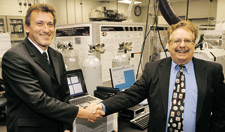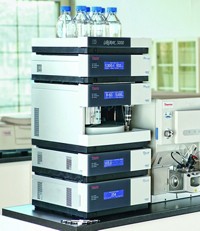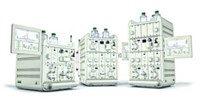Advertisement
Grab your lab coat. Let's get started
Welcome!
Welcome!
Create an account below to get 6 C&EN articles per month, receive newsletters and more - all free.
It seems this is your first time logging in online. Please enter the following information to continue.
As an ACS member you automatically get access to this site. All we need is few more details to create your reading experience.
Not you? Sign in with a different account.
Not you? Sign in with a different account.
ERROR 1
ERROR 1
ERROR 2
ERROR 2
ERROR 2
ERROR 2
ERROR 2
Password and Confirm password must match.
If you have an ACS member number, please enter it here so we can link this account to your membership. (optional)
ERROR 2
ACS values your privacy. By submitting your information, you are gaining access to C&EN and subscribing to our weekly newsletter. We use the information you provide to make your reading experience better, and we will never sell your data to third party members.
Analytical Chemistry
Inside Instrumentation
Technology and Business news for the laboratory world
by Celia H. Arnaud and Ann M. Thayer
February 19, 2007
| A version of this story appeared in
Volume 85, Issue 8
Eksigent debuts microfluidic system
(1) Eksigent has introduced a low-flow liquid chromatography (LC) system for monitoring reaction kinetics. The ExpressRT-100 enables quick monitoring of reactions, making it possible to optimize reaction conditions rapidly. The complete system includes the ExpressLC-100 capillary LC instrument along with a module to dilute, quench, and transfer samples into the unit. The system runs assays up to five times faster than can conventional LC, according to the Dublin, Calif., company.
Automated units for cell and crystal growth
Thermo Fisher Scientific has two new automated WorkCell units available for cell or protein analysis. Its Cell Growth & Discovery WorkCell unit automates cell growth, colony selection, and assaying. The environmentally controlled closed system will work with multiple cell lines and cultures. Separately, Thermo Fisher has developed the MaX WorkCell for producing plates for macromolecular crystallization experiments. It is compatible with multiple plate types and protein crystallization techniques. The unit can be combined with the company's Rhombix Vision instruments for imaging studies.
Companies launch real-time PCR systems
Applied Biosystems Inc. has launched a new system for real-time analysis of polymerase chain reactions. The StepOne Real-Time PCR System is aimed at budget-minded researchers interested in low-throughput applications. It complements ABI's other mid- and high-throughput product offerings. The new system can be used for a variety of applications, including gene expression studies and genotyping. Meanwhile, Roche Diagnostics and Caliper Life Sciences announced they will offer an integrated system linking Roche's LightCycler 480 Real-Time PCR system with Caliper's Twister II microplate handler, which can load up to 200 standard microplates.
Beckman offers multimode detector
(2) Beckman Coulter has introduced the Paradigm detection platform, a modular system of eight interchangeable cartridges for a variety of assays. The cartridges contain wavelength-tuned light sources and optics for fluorescence polarization, time-resolved fluorescence, dual-label fluorescence, and luminescence. The company says the multimode detector is ideal for labs with many users and different applications in formats ranging from six to 1,536 wells. Beckman has also launched a new low-volume workstation, called BioRAPTR, for use alone or in combination with the Paradigm platform and other instruments. The microfluidic workstation is designed for assay miniaturization applications in drug discovery, genomics, and proteomics studies.
Symyx offers benchtop instrument
Symyx Technologies, Santa Clara, Calif., is offering a software-driven system for automating repetitive experimental procedures. The self-contained Benchtop System comes programmed with multistep standard applications such as analytical sample preparation, as well as crystallization, formulation, and solubility studies. Underlying the system is a robotic base station onto which researchers can add specific modules for given tasks or projects.
Metallomics Center at University of Cincinnati

The University of Cincinnati and Agilent Technologies have teamed up to study the impact of metals on biological systems. The University of Cincinnati/Agilent Technologies Metallomics Center of the Americas, located on the university's campus, will focus on such applications as neurological research, metalloproteomics, metal tags for ultra-trace-level determination of organic compounds, and environmental monitoring. Researchers at the center will use liquid chromatography paired with various forms of mass spectrometry. The center is an outgrowth of a five-year program of Agilent with chemistry professor Joseph Caruso (shown above right with Agilent's Rudi Grimm). Caruso serves as the center's director. The center also includes government and academic partners in Argentina, Brazil, Canada, and Mexico.
Inside Instrumentation is written by Celia H. Arnaud and Ann M. Thayer. Contact them via e-mail to instrumentation@acs.org.






Join the conversation
Contact the reporter
Submit a Letter to the Editor for publication
Engage with us on Twitter